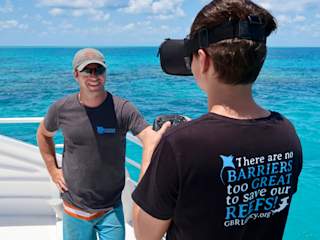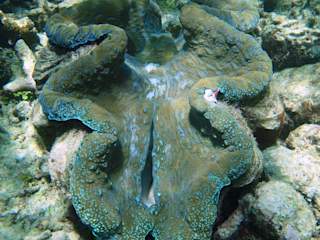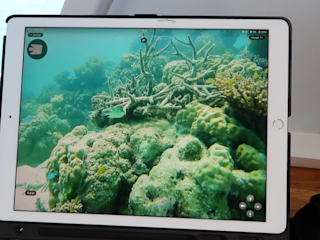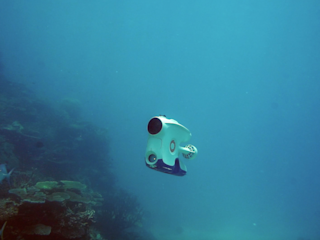Dr. Dean Miller is the leader of the Great Barrier Reef Legacy, a group of researchers who have set the goal to locate and then propagate "super corals" that appear best able to survive bleaching caused by climate change.
The Legacy is in charge of the only indepentent research vessel on the Great Barrier Reef, and thus their project is crowd-funded from a mix of organisations and private people.
Early November, I went all the way from Trondheim to Port Douglas, Australia, to hand over one of our Blueye Pioneer underwater drone prototypes to the legacy, and to learn more about their work! Until now this was as far any of our underwater drones had traveled, and I was extremely excited to visit the reef that for me was the very symbol of tropical marine wildlife that I'd only seen in documentaries! My plan was to spend two days with demos and trials, so that the team would learn everything there is to know about the Blueye Pioneer underwater drone - and try it out for themselves!
Arriving late at night in Port Douglas, I met with a couple of people from the team for dinner and a briefing of what was gonna happen the following days. I made sure to put everything to charge; the drone, buoy, iPad and controller, and made sure to pack some extra batteries as I knew we were going to dive for several hours.
The next day started with a technical go-through. Dean, his co-leader, John Rumney, and Jake followed my intructions closely as I described how everything works.

After a quick explaination we were ready to dive! These guys spend so much time in the water, it's almost surreal to be able to dive in yet stay dry on top of the surface, they say.

Foto: Christine Spiten
This time of year was just before the coral spawning, with relatively clear water and we were lucky to have easy weather conditions with only small waves and warm breeze. Because of the strong sunlight which create reflections on our screens, we decided to use the digital divingmasks and keep the big iPad indoor for spectators.
It did not take long before both Dean and Jake were pro drone-divers!
Surprisingly good control! And the fish don't seem to be bothered..
In the area we went diving, the reefs were mostly healthy except a few smaller areas of bleached corals. Still, according to NOAA's most recent Coral Watch forecast presented here in The Guardian, the coming months will give the third year of mass bleaching events in a row.
"We will identify and fully understand the coral species that are able to make it through these events, and therefore we will have a much better idea where to invest our energy and resources for restoration efforts," Dr Miller says.
We have no idea what we might find! - Dean Miller.
As the expedition was ongoing the research team did an excellent job keeping all followers and the press updated on the progress and intriguing findings. One of them being a coral species completely new to science - the first new species to be discovered in more than 30 years!
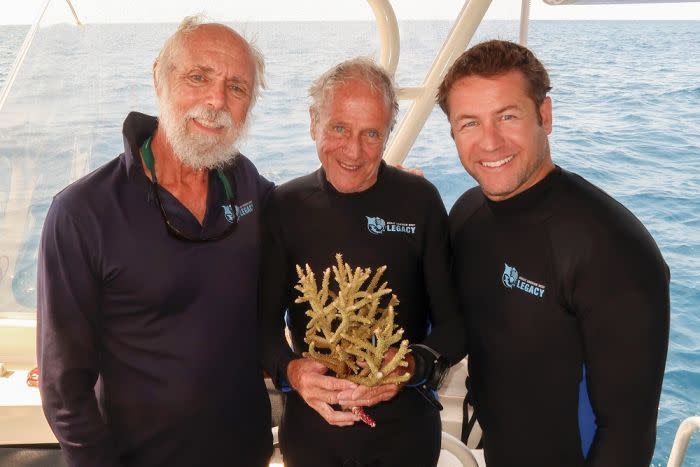
Foto: Great Barrier Reef Legacy
Onboard the expedition was Charlie Veron, known as the Godfather of Coral, who has discovered about 20 per cent of the world's coral species.
We look forward to follow the mission of the GBR Legacy and to see what they will discover with the Blueye Pioneer underwater drone! Best of luck, guys! We will always remember that No barriers are too great to save the reefs!
Want to read more stories like this? Have a look at all of our voyages with the underwater drone here.

